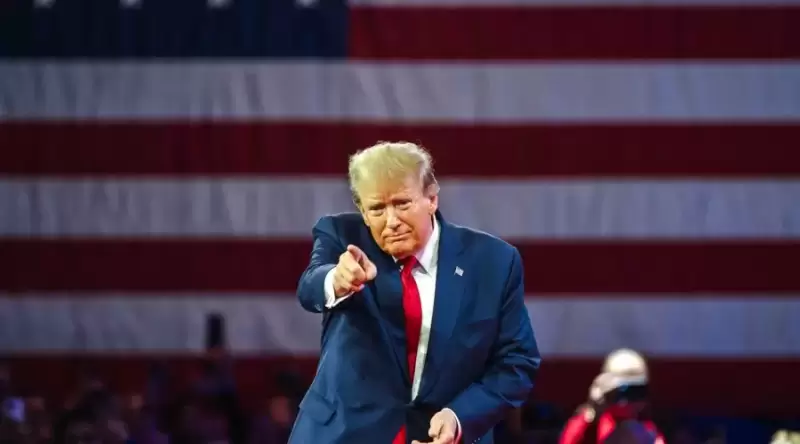 |
|
 |
|
 |
|
 |
|
 |
|
 |
|
 |
|
 |
|
 |
|
 |
|
 |
|
 |
|
 |
|
 |
|
 |
|
Cryptocurrency News Articles
Fake Crypto Policy Attributed to Massachusetts Senator Debunked
Apr 23, 2024 at 03:09 am
On April 21st, a seemingly real letter purportedly from Senator Elizabeth Warren to President Biden calling for a 1% wealth tax on crypto holdings over $500,000 sparked outrage on social media. However, the authenticity of the letter was quickly questioned due to spelling errors in the senator's name and discrepancies with her official website. Despite the evidence, some crypto users remained skeptical, highlighting Senator Warren's previous anti-crypto stance and proposed legislation, such as the Digital Asset Anti-Money Laundering Act.

Massachusetts Senator's Anti-Crypto Policy Proposal Debunked as Fake
A recently circulated letter purporting to be from Massachusetts Senator Elizabeth Warren to President Joe Biden, proposing a 1% wealth tax on crypto holdings exceeding $500,000, has been revealed to be a fabrication. Despite the evident inconsistencies with Warren's known positions and the lack of official verification, the fake letter garnered widespread attention and caused a commotion within the cryptocurrency community.
Upon closer examination, the purported letter displayed glaring errors, including misspelling Senator Warren's first name as "Elizabeth" instead of the correct "Elizabeth." The letter also lacked the official letterhead typically used by U.S. Senators in communication with the President. Additionally, no such letter appeared on Senator Warren's official website, further casting doubt on its authenticity.
Despite the obvious discrepancies, some members of the cryptocurrency community initially expressed apprehension about the letter's validity. However, a spokesperson for Senator Warren's office has since confirmed that the letter is indeed fake and not representative of the Senator's views on cryptocurrency regulation.
Senator Warren has been a vocal critic of cryptocurrencies, frequently raising concerns about their potential role in illicit activities, such as money laundering and terrorism financing. She has proposed legislation aimed at addressing these concerns, including the Digital Asset Anti-Money Laundering Act, which has faced criticism for its potential to stifle innovation and hinder legitimate crypto transactions.
In contrast to Senator Warren's skepticism, Republican candidate for Massachusetts Senate, John Deaton, has positioned himself as a strong advocate for the cryptocurrency industry. As a crypto lawyer, Deaton has represented some of the biggest players in the crypto space, including Coinbase in its civil lawsuit against the U.S. Securities and Exchange Commission.
Deaton's support for cryptocurrencies and his opposition to heavy-handed regulation have resonated with a significant portion of the crypto community. In the first quarter of 2024, Deaton's campaign raised approximately $1.36 million, including a substantial $1 million from his own funds, compared to Warren's $1.09 million.
The fake anti-crypto letter incident highlights the importance of critical thinking and fact-checking in the digital age. While social media can be a valuable tool for disseminating information, it is equally essential to be vigilant about the accuracy and legitimacy of the content shared. The cryptocurrency community, in particular, has fallen prey to misinformation in the past, leading to unnecessary fear and uncertainty.
The spread of false information can undermine trust in both the crypto industry and the political process. It is incumbent upon all stakeholders, including policymakers, industry leaders, and the public alike, to work together to combat the dissemination of fabricated or misleading content. By promoting transparency and accountability, we can ensure that informed decision-making and constructive dialogue prevail over misinformation and deception.
Disclaimer:info@kdj.com
The information provided is not trading advice. kdj.com does not assume any responsibility for any investments made based on the information provided in this article. Cryptocurrencies are highly volatile and it is highly recommended that you invest with caution after thorough research!
If you believe that the content used on this website infringes your copyright, please contact us immediately (info@kdj.com) and we will delete it promptly.
-

-

-

-

-

- US President Donald Trump has once again delivered on his campaign promise.
- Apr 03, 2025 at 03:05 pm
- Yesterday (Wednesday), he officially ordered reciprocal tariffs to be imposed globally from 5 April. Global stock and cryptocurrency markets are expected to see cautious investor sentiment due to the possibility of an escalated trade war triggered by these US tariffs.
-

-

- Pi Network Price Crashes Hard as Binance Skips the Token in Its Latest Vote to List Initiative
- Apr 03, 2025 at 03:00 pm
- Pi Network supporters are once again left frustrated as Binance skips the token in its latest Vote to List initiative. This marks the second time the world's largest exchange has ignored Pi, shutting down hopes of an imminent listing.
-

-




























































